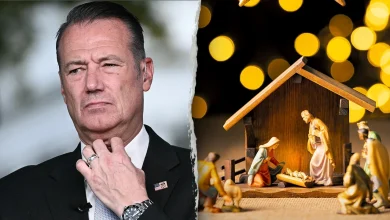U.S.-Canada trade deal could be ready for approval at APEC summit, sources say

Open this photo in gallery:
Prime Minister Mark Carney and U.S. President Donald Trump shake hands in the Oval Office on Oct. 7. The two are set to attend the Asia-Pacific Economic Cooperation summit later this month.Adrian Wyld/The Canadian Press
A trade deal on steel, aluminum and energy could be ready for Prime Minister Mark Carney and U.S. President Donald Trump to sign at the Asia-Pacific Economic Cooperation summit later this month, two sources say.
Such a deal would offer long-sought relief for the Canadian metals industry, which has been among the hardest hit in this country by U.S. tariffs. And any trade relief would ease pressure on Mr. Carney, who ran on his ability to manage Canada’s economy at a time of rising U.S. protectionism but failed to reach an agreement over the course of summer negotiations with Mr. Trump.
But the sources say the Americans are not ready to make any deal on automobiles or softwood lumber, two of Canada’s most important exports to the United States.
The Globe and Mail is not identifying the sources so they could speak frankly about the negotiations, which involve top Canadian and U.S. officials and input from affected industries.
Steel tycoon Barry Zekelman cuts stake in Algoma as trade war drags on
The Trump administration has imposed 50-per-cent tariffs on steel and aluminum and 25-per-cent tariffs on automobiles with a carve-out for parts compliant with the United States-Mexico-Canada Agreement. Lumber exports have been hit with tariffs of 45 per cent.
Aluminum, steel and the Keystone XL pipeline have dominated talks over the past two weeks in Washington. Those talks were led by Dominic LeBlanc, minister responsible for Canada-U.S. trade; Privy Council Clerk Michael Sabia; and Canadian Ambassador Kirsten Hillman, the country’s chief negotiator. The Canadian negotiators dealt with U.S. Commerce Secretary Howard Lutnick and Trade Representative Jamieson Greer.
Mr. LeBlanc and Mr. Sabia – a former chief executive of Hydro Québec, BCE and the Caisse de dépôt et placement du Québec – returned to Ottawa on Friday. But the sources said the door is open to them travelling again to Washington before Mr. Trump and his top trade advisers leave Thursday for Malaysia, Japan and the APEC summit in South Korea.
“Minister LeBlanc continues to engage with senior U.S. officials, as working towards an agreement with the United States is his top priority,” his press secretary, Gabriel Brunet, told The Globe Monday.
These talks are separate from more formal and wide-ranging renegotiations that will take place in the new year on the USMCA continental free-trade deal.
The two sources said significant progress was made over the past two weeks in Washington on steel and aluminum, but they declined to delve into details. On steel, the sources said, Canada would likely have to accept quotas in exchange for a lower tariff. The Americans need Canadian aluminum and Ottawa is opposed to any tariffs or quotas.
Open this photo in gallery:
Workers inspect sheets of stainless steel at Magna Stainless and Aluminum in Montreal. Tariffs on steel and aluminum imports are currently at 50 per cent, while auto tariffs are 25 per cent.Christopher Katsarov/The Canadian Press
The U.S. negotiations also involve the possible revival of the Keystone XL oil pipeline from Alberta to Texas refineries. The pipeline project was cancelled by former president Joe Biden.
Critical minerals, which the Americans are keen to obtain, are not on the table in these talks, one of the sources said.
The source said that more talks need to take place before a deal can be reached. A meeting at APEC between Mr. Carney and Mr. Trump could make all the difference to a successful conclusion, the source said.
The APEC summit in South Korea starts Oct. 29 and both the President and Mr. Carney are likely to meet on the sidelines, the source said. The Prime Minister’s Office said no meetings have yet been formally set up at the APEC summit.
Both leaders are also expected to meet separately with Chinese President Xi Jinping. Mr. Carney is hoping to talk about China’s decision to block imports of Canadian canola in retaliation for Ottawa’s decision to ban Chinese-made electric vehicles.
U.S. automakers on track to pay $10-billion in tariffs by end of October
After months of inaction, Canada-U.S. talks took on momentum after Mr. Trump hosted the Prime Minister at the White House on Oct. 7. Mr. Carney left Washington without a deal in hand or anything concrete to announce. But the Canadian team of Mr. LeBlanc, Mr. Sabia and Ms. Hillman were instructed to hammer out the finer details of a possible agreement.
Mr. Carney has been under pressure from unions, some in the corporate sector and several premiers, including Ontario’s Doug Ford, to hit back at the U.S. over its tariffs on steel, aluminum, autos and lumber. He has refused to do so, telling reporters last week: “There are times to hit back and times to talk and right now is the time to talk.”
Mr. Carney is also being pushed by China and the premiers of Saskatchewan and Manitoba to lift 100-per-cent tariffs on Chinese electric-vehicle imports in exchange for Beijing removing its ban on Canadian canola.





